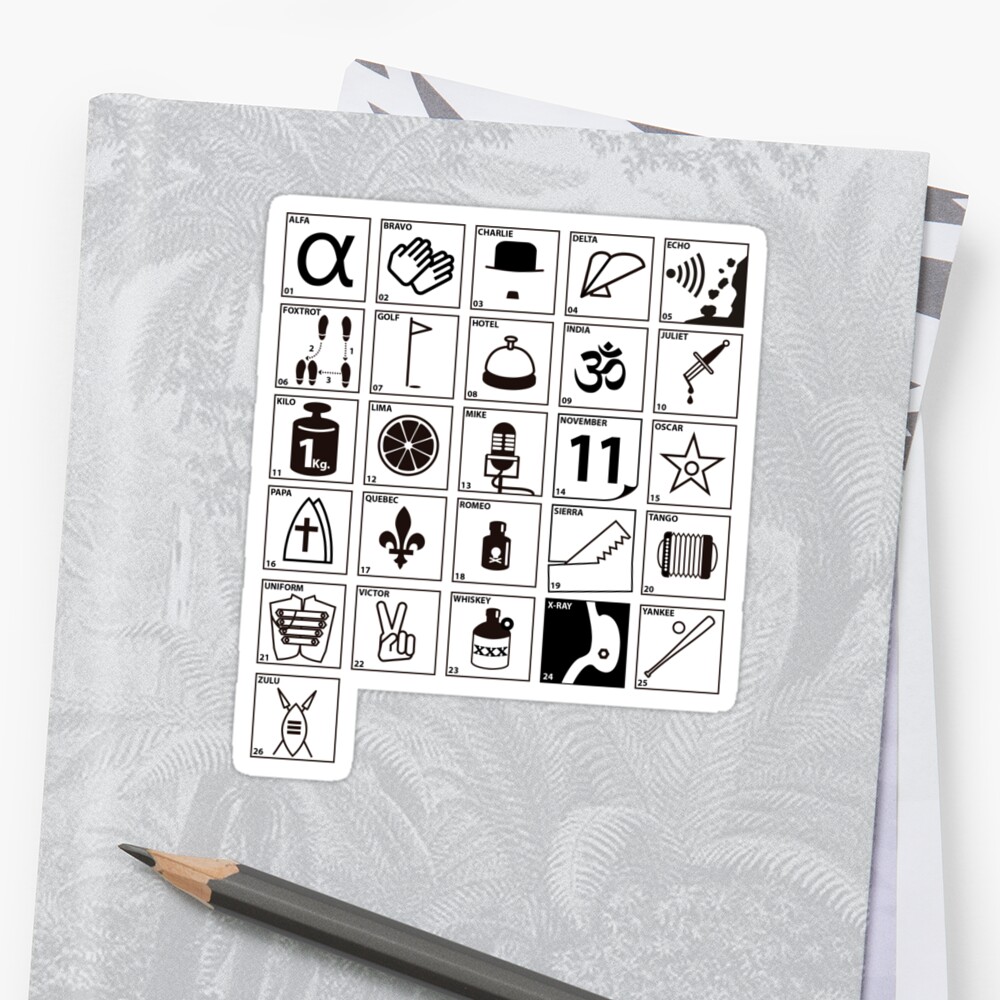

Because the latter allows messages to be spelled via flags or Morse code, it naturally named the code words used to spell out messages by voice its "phonetic alphabet". An alternative name for the ICAO spelling alphabet, "NATO phonetic alphabet", exists because it appears in Allied Tactical Publication ATP-1, Volume II: Allied Maritime Signal and Maneuvering Book used by all navies of NATO, which adopted a modified form of the International Code of Signals. Subsequently this second world war era letter naming became accepted as standard by the ICAO in 1947.Īfter the creation of NATO in 1949, modifications began to take place. Both nations had previous independently developed alphabet naming system dating back to World War I. The US and UK began to coordinate calling alphabets by the military during World War II and by 1943 they had settled on a streamline communications that became known as the CCB. Problems playing this file? See media help. Thus, the Combined Communications Board (CCB), created in 1941, derived a spelling alphabet that was mandated for use when any US military branch was communicating with any British military branch when operating without any British forces, the Joint Army/Navy spelling alphabet was mandated for use whenever the US Army and US Navy were communicating in joint operations if the US Army was operating on its own, it would use its own spelling alphabet, in which some of the letters were identical to the other spelling alphabets and some completely different.

A summary of the terms used was published in a post-WWII NATO memo: This table combines the ICAO international spelling alphabet and the ITU International Morse Code.ĭuring WWII, the Allies had defined terminology to describe the scope of communications procedures among different services and nations. NATO Phonetic And Morse Code Alphabet, from the US Navy Signalman 3 & 2 training manual, 1996. The last WWII spelling alphabet continued to be used through the Korean War, being replaced in 1956 as a result of both countries adopting the ICAO/ ITU Radiotelephony Spelling Alphabet, with the NATO members calling their usage the " NATO Phonetic Alphabet". For communication between the different countries and different services specific alphabets were mandated. The Allied militaries – primarily the US and the UK – had their own radiotelephone spelling alphabets which had origins back to World War I and had evolved separately in the different services in the two countries. they are not a system for transcribing speech sounds. They are not a "phonetic alphabet" in the sense in which that term is used in phonetics, i.e. The Allied military phonetic spelling alphabets prescribed the words that are used to represent each letter of the alphabet, when spelling other words out loud, letter-by-letter, and how the spelling words should be pronounced for use by the Allies of World War II. For the visual representation of speech sounds, see phonetic notation. For other agencies' lists, see spelling alphabet. I thought it was interesting at least.This article is about the alphabetic word lists used in military radio communication.

didn't mean for it to be off topic though. Guess this might be construed as a waste of a post. Papa - Ziro the Hutt's dad, but that is hardly relevant. Oscar - well, this is what Star Wars movies get. Mike - if you think of a clone trooper nicknamed Mike, feel free to contact me Kilo - a unit of measurement, nothing more. India (these are obviously too real-world to be usable lol) Grievous also used an attack formation, Echo-3.įoxtrot - Foxtrot Group, Gregor's commando squad So if you've read that let's jump right into it.Īlpha - Rex's prospective name at one point during development of The Clone Wars, Alpha-class ARC TroopersĬharlie - No Charlie Squadrons that I can think of in the Clone Wars.Įcho - ARC Trooper Echo (that's not what he was named after, I'm just rootling out coincidences here).


 0 kommentar(er)
0 kommentar(er)
